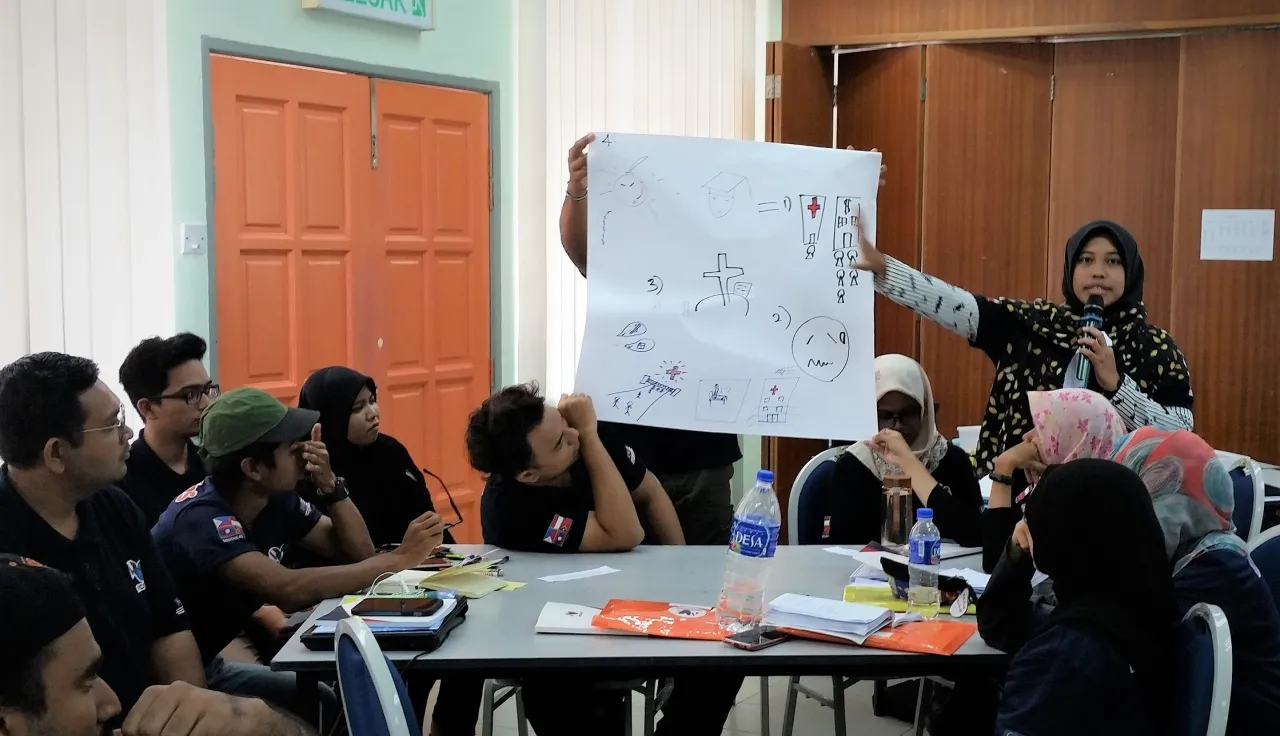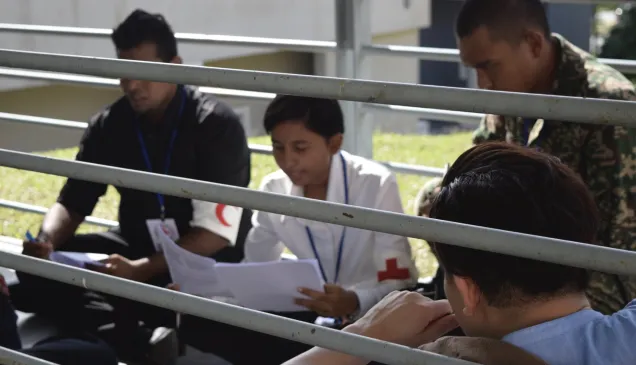Malaysia: Young volunteers learn that “Health Care in Danger” is really a matter of life and death

Armed conflict and other emergencies spark an increased need for medical assistance, but attempts to provide health care often leave volunteers, facilities and patients vulnerable to violence. It is important, therefore, to prepare health-care workers for the dangers they may face while deployed.
Recently, 42 youth who volunteered for a three-month deployment as part of the Malaysian Youth Volunteering Programme (MYCorps), attended a session on health care in danger to prepare them for the challenges faced by humanitarian actors in the field.
The group of volunteers – ranging from doctors and engineers to fresh graduates between 18 and 30 years of age – participated in the two-hour session on 19 April 2019 in Perak.
The session was moderated by the International Committee of the Red Cross (ICRC) as part of its Health Care in Danger (HCiD) initiative. Through this global programme, the ICRC aims to address the issue of violence against patients, health workers, facilities and vehicles and ensure safe access to and delivery of health care in armed conflict and other emergencies.
The session used case studies based on true incidents from around the world to illustrate ground realities and spark discussion amongst the participants. One case study involved a man blowing himself up at a medical college's graduation ceremony, killing 20 graduates, depriving a post-conflict country of desperately-needed doctors. They also discussed the disastrous consequences of ambulances being blocked and another instance where young children were found crouching beside their mothers' lifeless bodies in a house that was shelled four days earlier.

Participants draw to express their thoughts on providing health care under dangerous conditions during the workshop. CC BY-NC-ND / ICRC / Lili Chin
In an open and interactive discussion during the session, the volunteers concluded that attacking and harassing medical personnel and facilities inevitably results in deadly consequences. However, they additionally agreed that health personnel and facilities must not get directly involved in the hostilities or they risk losing their protection.
One participant, Niqoe Martin, felt that authorities should put in more effort to protect health-care providers, including enforcing strict laws.
The session helped expand the youth's understanding of the dangers of providing medical assistance in conflict zones but also motivated them to help others. Muhammad Arif, another volunteer, declared that he is now determined to participate in more humanitarian assignments in the future. Expressing similar sentiments, Iqbal, Syazwan, Rijaluddin, Nurul Ashira, Syarafina and Deborah Andrew also vowed to spread awareness on the issue amongst their friends.
The volunteers left the workshop more conscious of the stark fact that health care in danger is indeed a matter of life and death – for those who need it as well as those who provide it.



